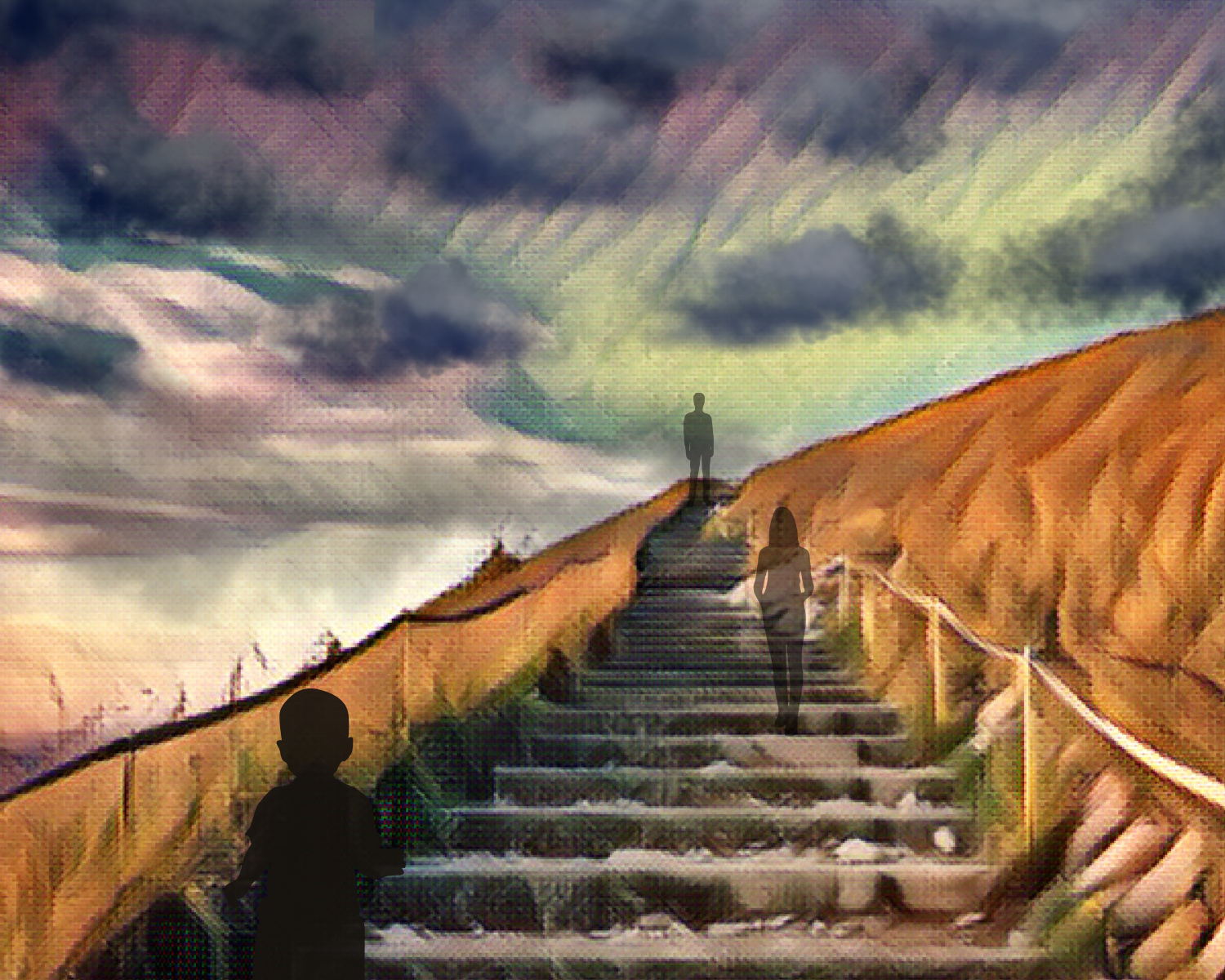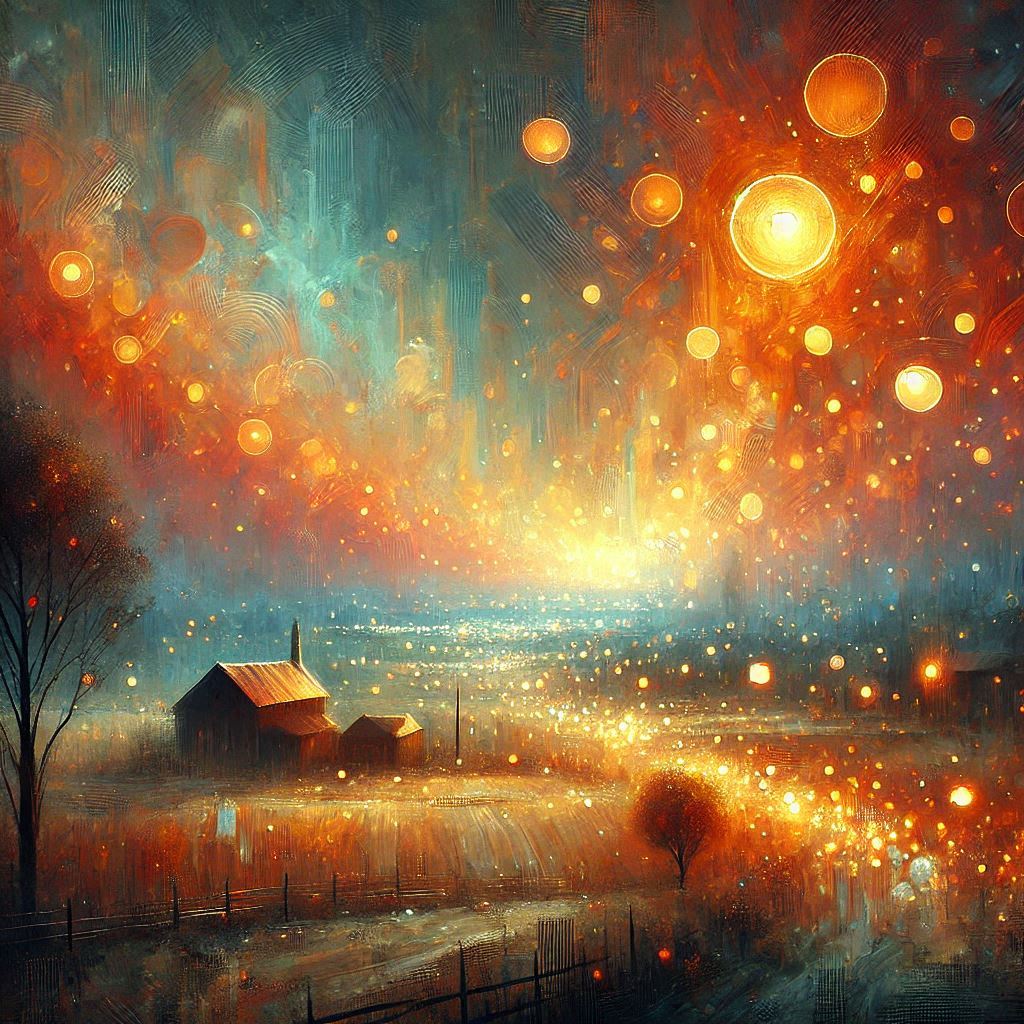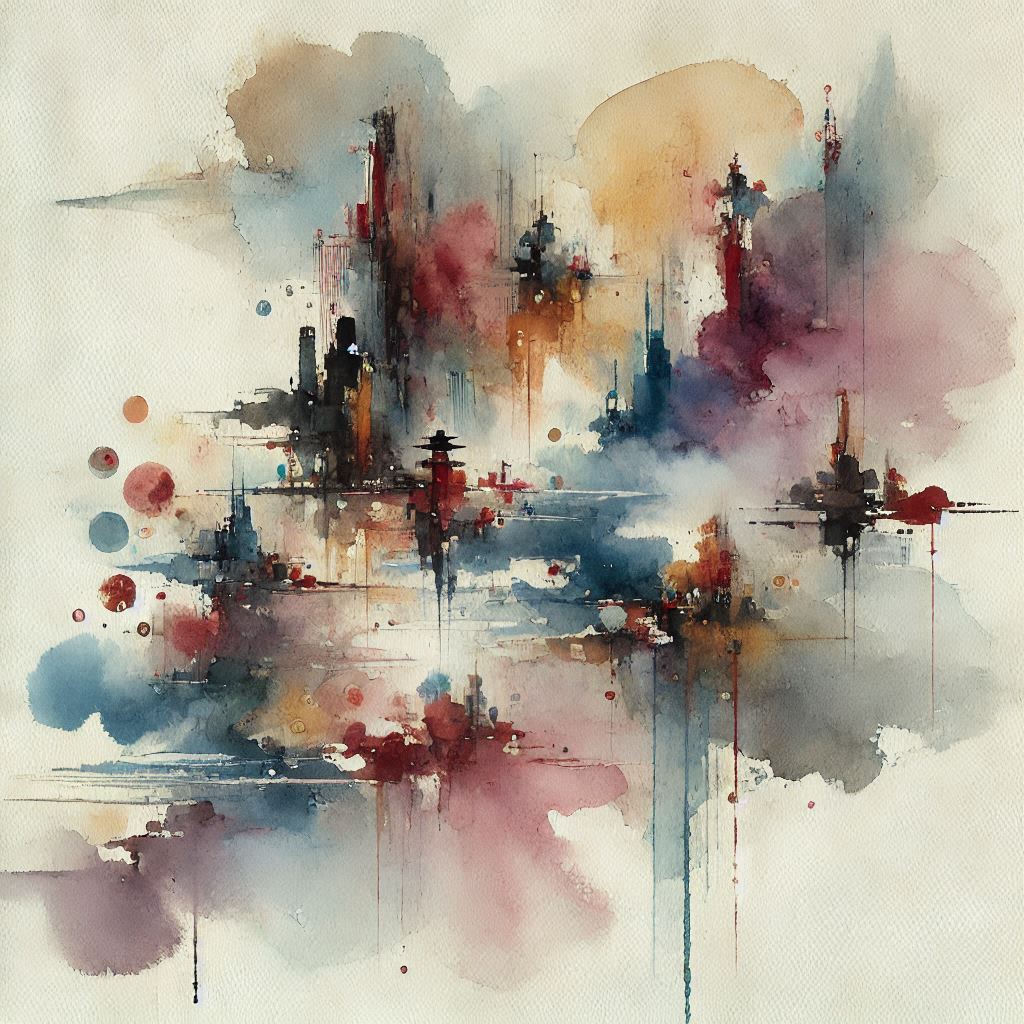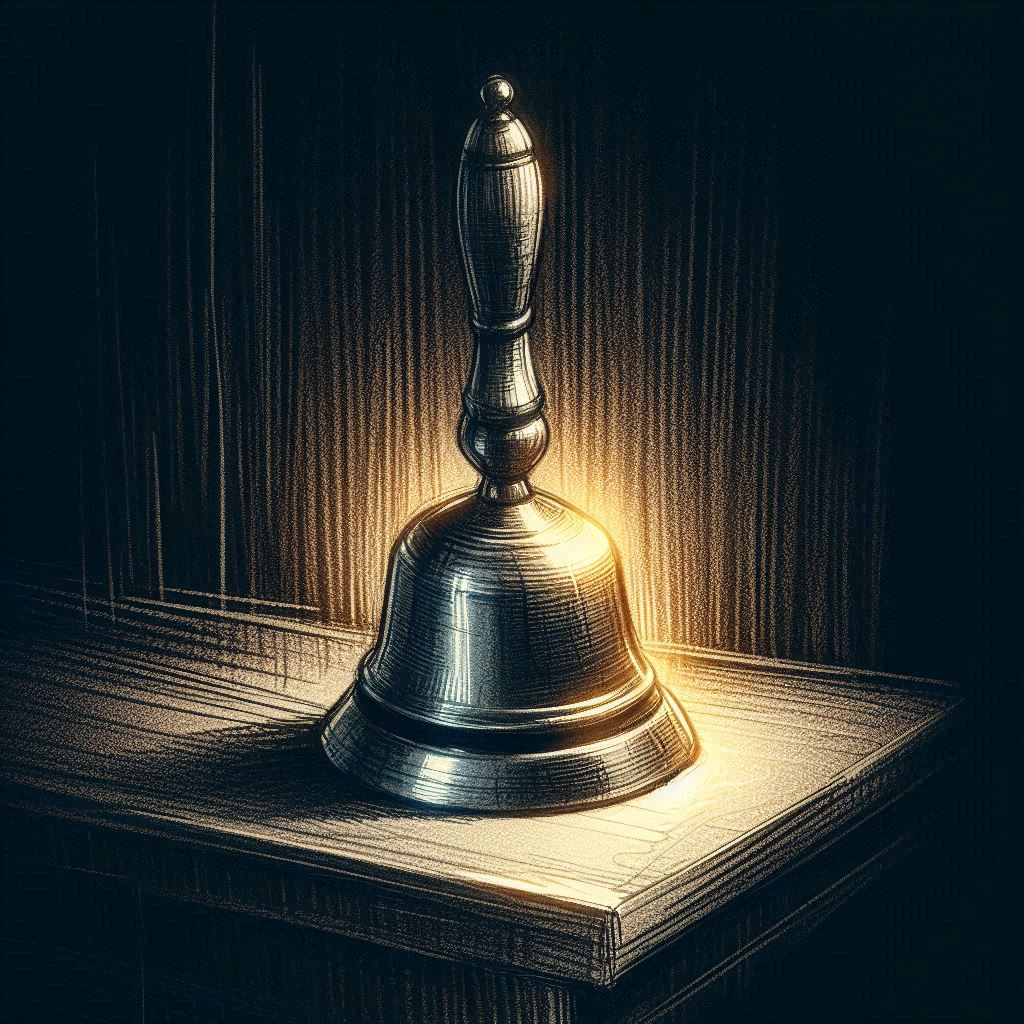
Mannequin Depictions
The March sky hung, both dark and light – white-gray and cyan blue. The three of us walked, hand in hand. Ethan was a middle link swinging between parents as we stepped over a water stream in the concrete parking lot. It flowed from a nearby hose, held by a construction worker. He moved it in a back-and-forth motion. I thought the water would reach us. I thought Ethan would run towards it and jump into its center, splashing a mess everywhere. I’d feel that way for a long time to come. I just didn’t didn’t know it yet, but that threat would loom, a viable energy, and connect the three of us like an electric dam. The pulsing shock would turn me to stone. It was coming.
This was a Wednesday, so I didn’t think the museum would attract many tourists. I was right, for once. The reception area awaited us, empty of spectators. A volunteer guide greeted us, while Ethan spun in circles, his arms out at his sides. I tried to catch his hand and pull him close, but he slipped out of reach.
“Just in time. The introductory video will begin in just a few minutes. Right up that way,” he said. Just in time.
Ethan bounced on the thinly carpeted steps. One. Two. Three successive jumps up, up, up. Chris and I glanced at each other and smiled, but I knew what we were both thinking: “I hope he watches this and doesn’t get bored too quickly.”
The auditorium sat vacant, except for one elderly man, positioned towards the top of the stadium pew seats. His hands were still gloved from the chill outside. I remember feeling lonely for him, wanting to ask him to join us, thinking he must feel isolated, alone, but I minded my own business.
In front of us, the curtain rose to reveal a large screen. A calmly voiced narrator recited the history of the Cahokia Mounds, just outside of Collinsville, Illinois. Around 1200 A.D., their civilization thrived. The aerial views revealed an organized, geometrical community. Chiseling noises and background chatter filled the dark space around us. It sounded like chaotic music. Their tones would echo for years to come.
Towards the end of the presentation, another screen lifted, revealing a life-sized display of ancient citizens in action. Mannequin depictions, adorned in thick leather apron-like garments, enacted what would have been daily life for them. Some were shucking corn, tending to children in papooses. Ethan sighed, amazed. What all they didn’t know, I thought. And yet, we’re somehow related to them. Connected as close as evolution will hold us.
Before we headed outside to hike the hills and mounds, the guide approached us. He handed me a purple flier. “Let me see! Lemme see!” Ethan shouted. I let him take it from the man, allowing him to feel in charge: the importance of power and control.
“If you all are interested, we’re holding the annual Archeology Day Demonstrations this May. Hands-on activities for kiddos. It’s free,” the guide said as I tried to read the information through Ethan’s fingers.
“Sounds great,” I said, but at that moment, I could hear my thoughts echoing, reverberating in that round visitor center. The noise sounded like the Cahokian soundtrack, all tinny and busy.
I hope it’s not shut down by then. I heard the ghost of my future self visiting me, an apparition speaking in full sentences. The voice was mine, but still someone else’s, speaking like an auditory photograph – black and white, weathered and worn with time.
“Thank you,” my husband said, and Ethan tugged on our arms because he had spotted the openness of the outdoors. “We’ll keep this in mind. For now, we’ve got to let him explore,” Chris added, nodding down at our four-year-old.
Thick woodlines surrounded the open space, encompassing history. Tall heaps of dirt and grass punctuated the area. We took off, following a paved path. We embraced our adventure. “Go ahead, run!” Chris said to Ethan. With no one else around, it was safe for him to travel a distance ahead of us. Bare trees swayed to the left, gentle in a whispering breeze. Our shadows formed and just as quickly, disappeared. Briefly, they merged into one form, into one silhouette of curves and angles.
Somewhere in those pointy branches, in the brown, decaying thickets, I was there, standing, watching us, a third-person observer, a stone statue of my future self. There in those shadows, she was the person I’d see passing me on highways as quickly as the white dotted lines. I also knew that the state of the world would cause me to leave her there, and I’d be forced to become someone new. Perhaps she’s still there now, years later, blending into the ever-shifting outlines between saplings and foliage. Neither Ethan nor Chris noticed her out there.
Years later, though, in a conversation about going on vacations, without any prompting, Ethan said, “Remember? We went to that place with the big, red curtain? There were fake people there. And stairs! Stairs up to the mountain!”
“Cahokia Mounds?” I said.
“Yeah, that’s it. I remember. Before.” He said “before.”
After clocking a few miles of flat earth, Ethan had spied Monk’s Mound and its numerous stairs. He pointed excitedly. “Let’s climb that one!” So we ascended the 154 steps. Ethan wanted us to count, out loud, as we climbed. Almost out of breath, we reached the summit. I rolled up my sweatshirt sleeves and exhaled. Surprisingly, there was another mother there with her young son. He balanced himself on a low beam that bordered the steep fall down to Highway 55.
“Look, honey! You can almost see The Arch from here,” I said to distract Ethan from bombarding the quiet young pair.
I pointed to the distance, thinking about the time and space between here and there, realizing how quickly this, too, would become a distant memory. How I’d look back at us standing in almost heaven, and I wondered who that future version of myself would be staring at us here in remembrance.
“Hi! I wanna do that, too,” Ethan said to the strangers, never shy. So the three of us, a married couple and a stranger, watched our sons take turns balancing themselves as they marched back and forth on the barrier. Of course, I could only see the potential danger. They were safe, though, under the shifting shades of sky. What would the Cahokians think if they saw this playful charade on their spiritual grounds? Would they be flattered? Or bothered? Are their ghosts here, too?
This moment, right here, would become the last time we were around random strangers, not knowing about staying “socially distant.” The memory falls like an off-switch: All becomes dark.
Leather stuck to my arms. Lifting them felt like ripping a skin layer from my muscle and bone. I was lying down, and a weight pushed against my chest. It breathed heat into my core. On the couch, Ethan and I sprawled horizontally, son atop mother.
The window blinds were eyes slit open, revealing us to the outside world where evening had, unbeknownst to us, settled in.
A loud, slow yawn escaped Ethan’s mouth, and we stretched somewhat awake, still sore after our long hike. As his force pressed me into the leather couch cushions, I was dropping. It was as if I were in that “almost asleep” state, and my body jerked involuntarily as I fell, a solid gravity mass, slamming into a solidified consciousness.
Again, I descended. Down. Down. Down. I plummeted peacefully through space and time. Time didn’t mean anything. Soon, it would. The concept of it would become synonymous with sinking, dropping, grasping for security. An imminent storm brewed foreboding clouds. They gathered in future skies. With Ethan’s small body curled on mine, I couldn’t see what was hovering in our horizon.
When I landed, I was grounded not on the couch with my son, but in my recliner, drink in my hand, alcohol buzzing and fogging my brain, and I was on the phone with Mom. “I don’t think it’s getting serious,” I said, curling my leg beneath me and bending my head ever-so slightly. Her silence waited like eyes pointing, judging, searching for clarification. Ethan had fully awakened, but he didn’t watch me. He was engrossed in his headphones and iPad, quietly entertained, not like me, waiting for a response from a role-model and best friend.
“It’s just an illness, like the flu, right?” She’ll agree with me. She’ll convince me the world is well. Nothing seriously concerning ever happens to us. Right, Mom? Oh. But it could. It would.
“Amanda. I can’t believe you’d say that. You read. You should be paying attention. ‘Social distancing’ will be a phrase you’ll get tired of hearing. Our healthcare systems, overwhelmed? Oh yeah. And this is NOT like the flu. Please. Don’t say those words to me. I’d rather not talk to you if you think such nonsense.”
I swallowed a bitter, alcoholic drink. Her emphatic tone sharply drowned my blissful buzz. The tingling in my limbs had suspended its glory.
Her words weren’t a reprimand, but they felt like one. Her judgment of my ignorance stung, a mosquito bite I’d itch while an entire year played out.
I was caught. Busted. I disappointed the most important person in my life. Before the mortal epiphany fully took over my sober thoughts, I responded, out loud, now away from those lint-covered cushions in our long-ago apartment. The news played and blasted blue light into our living room. I didn’t yet read the headlines, but the images— those I saw. Surgical masks. Aisles of empty store shelves. White-coated, face-shielded medical professionals rushing down sterile hallways.
“Well, we were going to take Ethan to the movies tomorrow, but now we won’t. So, we won’t go to the movies, and we won’t get on a plane. Okay? So what else?” How that question haunts me. I hear the ghost version of myself as she mouths it to me from those Illinois woods.
“Honestly? Don’t know,” she said calmer now, sighing, exhausted. I could imagine her sipping white wine from a glass so clear, the crystal may as well have been in the room with Ethan and me.
I felt it coming then. The pounding. The short breaths. The panic was familiar to me as my own reflection.
“You’re right,” I said. “You’re right.”
When I hung up the phone, I stood up from my comfortable chair, and I turned to Chris. He had been in the room the entire time, oblivious to my increased heart rate. He looked up from his phone when I broke his focus.
“Maybe we should prepare,” I said. Usually, he would respond to me with his own casual conversation, his own jokes, or his own commentary. But “right now” became a new moment for us both. Perhaps he saw me and my ghost. Maybe it was the way my voice sounded in a squeal, the high-pitched vibrations. Did he feel the earth shift, too? He set his phone down with purpose, standing at attention, as if he were responding to roll call, as if he were still a cop.
“I’m going to the grocery store. To stock up.” Chris’s authority, his confidence, his immediate agreement caused me to lower my shoulders. Their weight dropping was as apparent as the absence of my son on my torso. My diaphragm extended. It may have been the first breath I had taken in minutes. No longer was I spinning, dizzy with uncertainty.
Oh, but my anxiety would return. “Unprecedented” and “Unpredictable” would soon torture my labored breaths again.
Chris returned in what seems an empty, fast-forwarded amount of time. Time can be both a friend and a foe.
He purchased toilet paper, sanitizer, and basic food items: eggs, milk, cheese, meat, lots of meat, batteries, bath wash, toothpaste, more products than we had ever, in fifteen years, owned at one point in time. Bags sidled his arms and piled along the side wall in the kitchen; our small bungalow long ago had given up any of its excess storage space. Usually, the clutter would make me panic, but I was already diving head-first into a black hole of terror. He saw me staring at the piles of plastic bags, the enormity of products. Supplies heaped. They covered the broken tiles in our kitchen.
“I’m sorry. There’s nowhere else to put it,” he said, sensing my organizational OCD. I watched, in my mind, how the wind had blown my hair around my neck while we traipsed the muddy terrain, how the air that day had been open, free. Was it only hours earlier I had easily laughed? “Run as far ahead as you can!” I had called to Ethan, hoping to burn some of his untamed energy. The sky had bled between barren trees, the wooded perimeter standing quietly around us. That parallel version of myself remains there in those trees, just as ancient. I had left her behind, in the evening darkness, frozen in that past forever, but I felt myself veering further and further from her. She faded like a shadow, a cloud covering the sun, like a mannequin depiction whose position remained unchanged for history to study.
Suggested Reading
-
about Lollipop, Lollipop![Lollipop]()
Featured • Fiction • Nonfiction
Lollipop, Lollipop
The figure moved slowly, deliberately, its shrouded head turning towards Josh. Those eyes—sharp and frigid as icepicks—stared at him. The man’s black lips never moved, even as a word pierced him like a yell: “Beware.”
Featured • Fiction • Nonfiction
-
Nonfiction
-
Flash • Nonfiction



